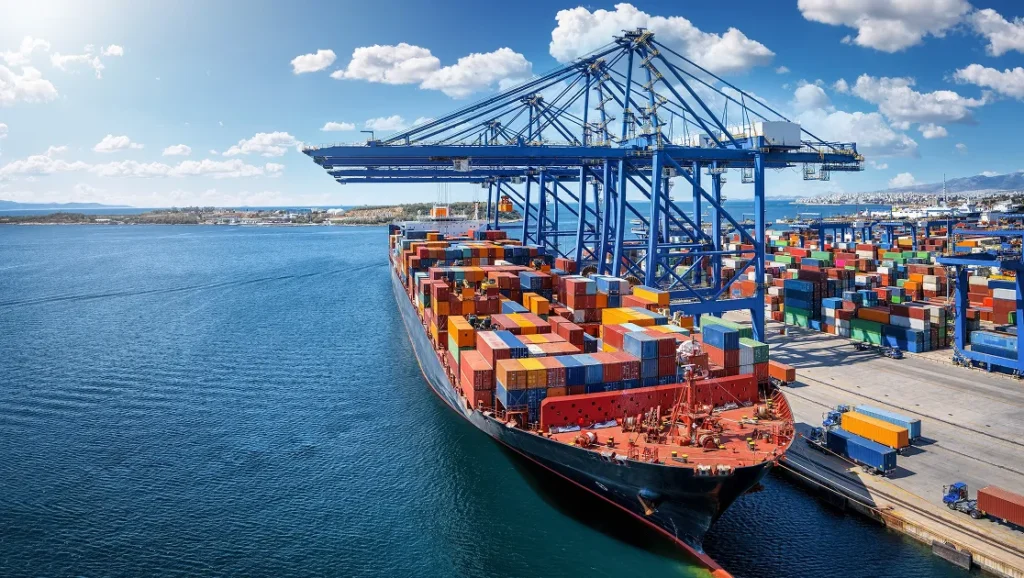A career in offshore and maritime industries often comes with significant risks. Unfortunately, these dangers can lead to devastating, life-altering injuries, including amputations. Imagine a skilled rig worker, caught in a machinery malfunction, losing a limb in an instant, or a deckhand, working in challenging conditions, suffering a severe injury that necessitates an amputation. These aren't just accidents; they're catastrophic events that forever change lives.
If you or a loved one has suffered a devastating amputation while working offshore or in maritime industries, Breit Biniazan is here to fight for your rights. We understand how deeply these injuries affect every part of your life—from your ability to work to your emotional well-being. Our compassionate legal team is dedicated to pursuing the justice and compensation you deserve.
What An Experienced Attorney Can Do For Your Case
Suffering an amputation while working in the maritime industry is a life-altering event. Maritime amputation cases are incredibly complex, governed by specialized federal maritime laws such as the Jones Act, maintenance and cure, and unseaworthiness claims. You'll likely be going up against powerful defendants—large shipping companies, rig operators, and their well-funded insurance carriers—who are experts at minimizing payouts.
At Breit Biniazan, our experienced maritime accident attorneys will thoroughly investigate the accident, gather crucial evidence, work with medical and industry experts, and build a strong claim to hold negligent parties accountable.
Maritime Work and Risk of Amputation Injuries
Workers in the maritime field face significant risks of severe injuries, including amputations. Some of the most common causes include:
Common Causes of Amputations at Sea
- Winch Accidents: Getting caught in or crushed by moving winches or capstans.
- Crane and Rigging Failures: Accidents caused by malfunctioning cranes or rigging equipment.
- Explosions or Fires Onboard: Including fires resulting from oil and gas leaks.
- Equipment Malfunctions and Crush Injuries: Involving poorly maintained machinery, defective tools, or unguarded equipment that can trap or sever limbs.
High-Risk Maritime Occupations
Certain maritime jobs face heightened exposure to amputation risks, including:
- Offshore Oil Rig Workers: Performing physically demanding tasks on drilling rigs in remote locations.
- Deckhands: Handling ropes, cables, and heavy equipment on deck.
- Shipyard Workers: Engaged in shipbuilding and repair on docks and dry docks.
- Oil Tanker and Cargo Ship Employees: Working with heavy cargo and large mechanical systems.
- Cruise Ship Employees: Facing risks in all operational areas of large passenger vessels.
Negligence Claims for Amputation Victims
For maritime amputation victims, exploring the legal options available for compensation is necessary. Unlike traditional workers' compensation systems, which generally prevent employees from suing their employers for negligence, maritime law offers specific protections for those working on or near the water.
These claims allow injured workers to seek comprehensive damages, including compensation for medical expenses (past and future), lost wages and earning capacity, pain and suffering, disfigurement, and loss of enjoyment of life – often far exceeding what a typical workers' compensation claim would provide.
The Jones Act
The Jones Act protects injured maritime workers by allowing seamen to pursue compensation for workplace injuries. Employers are required to provide a reasonably safe working environment. If you qualify under the Jones Act, you may recover damages related to medical care costs, lost wages, pain and suffering, and even rehabilitation expenses.
Who is Protected by The Jones Act?
- Seamen, including masters and crew members of vessels
- Deckhands and other crew working aboard vessels
- To qualify, you must spend at least 30% of your time aboard a vessel in navigable waters.
Longshore and Harbor Workers’ Compensation Act
The LHWCA applies to maritime workers injured while working on navigable waters but who are not seamen. It provides protections such as wage replacement, medical expense coverage, and job protection.
Who is Protected Under the LHWCA?
- Longshore workers involved in loading and unloading ships
- Marine construction workers
- Shipbuilders and repairers
- Harbor and dock workers
- Ship-breakers
Impact of Maritime Amputation Injuries
Long-Term Disability and Rehabilitation
Amputations often lead to permanent disability requiring extensive physical rehabilitation. Recovery involves managing pain, preventing complications, and regaining mobility.
Prosthetics, Occupational Therapy, and Relearning Skills
Many maritime amputation survivors need customized prosthetics and must relearn basic daily tasks, sometimes engaging in lifelong therapy and adaptive training.
Emotional and Psychological Toll
Beyond physical challenges, amputations bring emotional trauma, anxiety, depression, and PTSD. Comprehensive legal support recognizes these impacts in seeking full compensation.
How Breit Biniazan Supports Maritime Amputation Victims
- Deep Knowledge of Maritime Injury Law: Our legal team has extensive experience handling maritime amputation claims under the Jones Act, LHWCA, and general maritime law. We understand the nuances of maritime workplace safety and vessel conditions.
- Dedicated Investigations and Expert Testimony: We conduct thorough investigations and collaborate with medical professionals, maritime engineers, and safety experts to establish negligence and vessel unseaworthiness.
- Advocacy With Compassion and Determination: Breit Biniazan combines legal strength with compassionate client care, guiding you through every step while fiercely fighting for your rightful compensation.
Contact Breit Biniazan Today
If you or a loved one has suffered an amputation injury in the maritime industry, do not delay seeking legal advice. Contact Breit Biniazan today for a free, confidential consultation. We are ready to stand by your side and help you pursue the justice and financial support you need to rebuild your life.
















